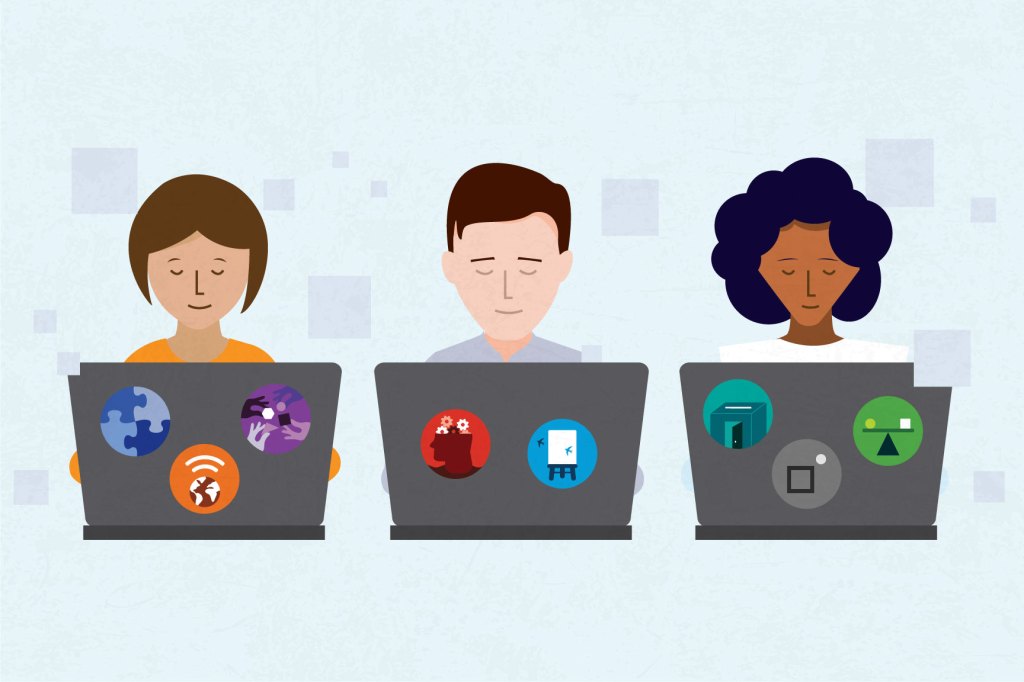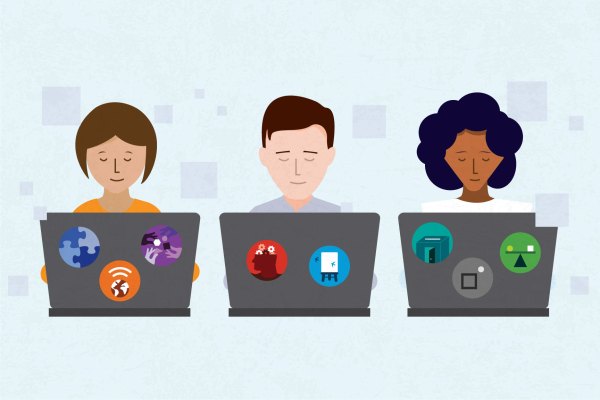
Learn more about the tech fellows program here and the growing field of Public Interest Tech.
What does being a technologist mean to you? How did you become one?
I’ve always loved sci-fi and cyberpunk fiction, and I’ve always been a voracious researcher, but my first experience thinking deeply and critically about technology came while studying anthropology at Barnard College. I was waxing theoretical about genomics and hybridization and my professor Sev Fowles encouraged me to think about “what’s at stake” in the biotechnological revolution. My resulting thesis, which traced threads from the Agricultural Revolution to cloning and lab-grown meat, set me on a path of questioning and problematizing tech developments within the context of historical social change.
Subsequent training on systems thinking and strategic analysis (at the Naval Postgraduate School) further honed these skills, and a stint in Silicon Valley doing syndicated research on tech futurism cemented my path. To me, a technologist is somebody who knows a little bit about a lot of different technology areas, can learn quickly about others, and can think critically about their applications and implications in various contexts.
In your own words and understanding: what is a tech fellow?
A tech fellow at Ford considers the ethical and practical implications of different technology approaches. In addition to supporting grantees, we help connect dots across disparate areas, using tech as a lens to consider emerging drivers of inequality. This ability to be both tactical and strategic allows us to operate at multiple levels within the foundation and our fields of focus. As a fellow on Ford’s Youth Opportunity and Learning team, my tech knowledge is only one lens I bring to my work. Systems thinking, user-centered design, landscape analysis, pattern finding, sensemaking, appreciative inquiry, good old-fashioned research, and other tools are just as foundational to my approach.
Technology is essentially neutral, but it can be used for good or evil purposes—or something in between. Give us an example that’s especially resonant for you.
I’m very interested in the hidden transactional dynamics of automated systems. There’s an adage, “if you’re not paying for the service, then you’re the product for sale.” When you use a search engine, it’s easy to forget you’re providing training data to improve a company’s search algorithms. This is especially relevant for young people, who are the future inheritors of the systems we’re building, and are already the holy grail for advertisers. Figuring out the consumption patterns, habits, preferences, attitudes, and beliefs of young people is only the beginning of our algorithmically intermediated immersive advertising future. It’s important that young people understand these dynamics so that they can eventually do a better job than we are at navigating and regulating the relevant systems.
What are you most excited about in the world of tech innovation today? What about in the area of social justice you’re specifically focused on—or at the intersection of the two?
One promising area (and something that is top of mind at the foundation) is narrative change. Throughout most of recorded human history, the narratives that drive individual worldviews and collective gestalt within our imagined communities have been largely top-down and directed. Digital technologies are enabling much more emergent, bottom-up narratives to propagate and compete. In the short-term, this looks like narrative fragmentation, with all of the ‘filter bubbles’ we see online. We are also in a messy period where digital technologies have tended to increase transparency but not necessarily accountability, which can drive cynicism and disengagement. In the long term, I’m interested in how the evolution of social media and emerging platforms like VR could become tools for more cohesive, authentic, representative, and inclusive narratives. For many years, the Stanford Virtual-Human Interaction Lab (VHIL) has been driving incredible research on “avatar psychology.” It turns out that getting some perspective through digital representations of self can drive behavior change, empathy development, and potentially even collective action. Youth will be at the center of navigating and driving new realities.
What do you really want people working to advance social justice to know about tech?
Tech—including apps, automation, and immersive environments, among many other things—can be an incredible tool, but the technology itself is often the least interesting or important piece. More interesting: Does the tool meet end-users where they are? What assumptions, values, and/or biases are embedded in the tool? Does the tool ultimately promote growth, optimization, access, or something else? What will drive or prevent adoption of the tool? How does the tool shift behavior, and which social systems are implicated in the shift? These are very human-centered considerations. Humans are at the core of technological development and deployment, so the fantasy that we can engineer ourselves out of decision-making, labor, and power structures is mostly unfounded. People are ultimately the architects of technological shifts, not machines. This comes with a lot of power and also a lot of responsibility.
What’s your favorite example of tech in pop culture, and why?
I recently re-watched Minority Report, based on the book by the amazing Philip K. Dick, which was a constant reference point during my time in Silicon Valley, when I was tracking tech developments that would enable various imagined futures. This story covers a range of issues including genetic engineering, brain computer interfaces, immersive environments, and the ethics of predictive analytics. In 2014, the Chicago Police Department announced they were visiting “pre-criminals” identified by an algorithm to warn them not to commit crimes. When reality echoes fantasy so closely, I think we need to pay closer attention to the fantasy. I’m especially interested in how sci-fi fantasies end up being predictive of technology development (think the Star Trek tricorder), but even more so in how such fantasies govern our relationships to technology as it advances. For example, if you’re thinking VR is just for gaming and you haven’t yet read The Peripheral by William Gibson, prepare to have your mind blown.

